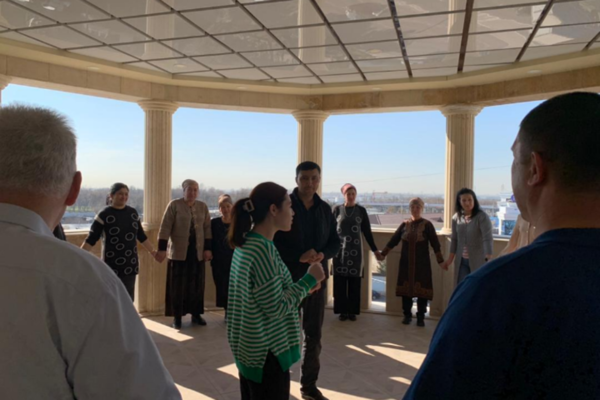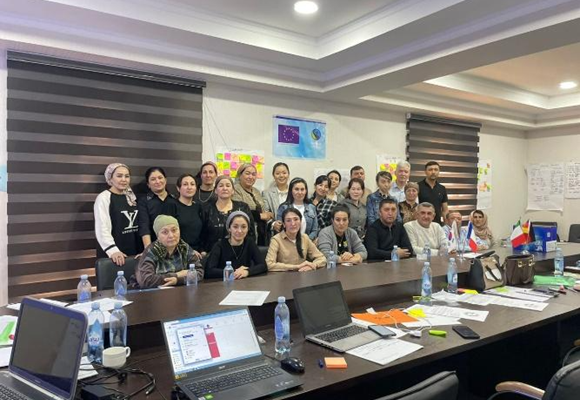Gender and leadership are intricately connected, as they promote diverse perspectives and styles that drive innovation and effectiveness in organizations and society. Embracing gender equality in leadership cultivates inclusive opportunities for individuals to contribute their unique talents, fostering an equitable world while nurturing women’s active participation in the economy.
The first round of the Gender Leadership School in local communities of Uzbekistan and Tajikistan revealed strong support from women and their keen interest in participating in such training. Building upon this success, the second round of Fairtrade NAPP Gender Leadership School Training for Trainers was organised in Tashkent, Uzbekistan in February. The event was co-funded by the European Union. The 03 day program covered four out of 10 modules planned under the Gender Leadership school.

A total of 21 individuals participated from both the countries who engaged in interactive teaching methods such as role-playing games, problem-solving tasks, and group work. These methods were complemented by outdoor games that effectively emphasized the relevance to the main themes of the modules. To enrich the learning experience, educational materials like pre and post-tests, powerpoint, presentations, and handout documents were utilized, fostering in-depth discussions and interactive sessions, ultimately resulting in a comprehensive and impactful learning journey.
The training program comprised four essential modules:
- Module 4: Group Cohesion and Principles of Cooperation- This module focused on fostering cooperation and collaboration within groups. It covered topics such as understanding group dynamics, enhancing cohesion, and effectively managing conflicts.
- Module 5: Women and Leadership: Exploring the Role of women in Leadership – This module delved into defining leadership elements. It addressed the background of women’s participation in cooperatives, strategies to increase their involvement in cooperative management, and their inclusion in decision-making processes
- Module 6: Women and the Economy – This module aimed to develop economic literacy among participants. It examined the concept of women in development, the triple role of women in economic development, and women’s participation in economic development, particularly within developing and fragile countries.
- Module 7: Women Understanding Money – Providing insights into financial management, this module aimed at educating participants on the budget process, sources of income, and total family or cooperative income. It also explored banking experiences, including success stories and instances of unsuccessful loans that left participants wary of banking services. Additionally, the session covered savings, credit, and debt management, as well as creating and managing investments by reflecting on both successful and unsuccessful investment experiences.
Prior to the commencement of the sessions, a pre-test was administered to assess participants’ knowledge, which was later compared with their post-test results. The findings demonstrated significant improvement in knowledge as all participants scored 10 or more.
The objective of the second stage of the trainers’ training was to enhance participants’ understanding in areas such as mutual assistance, team spirit, and fostering positive teamwork dynamics. It also aimed to deepen their knowledge of women’s leadership and effective decision-making approaches. The participants gained fundamental knowledge in economics, including the role of women in the economy and society, as well as the significance of their participation in cooperatives. Empowering women is essential to create level playing opportunities in diverse fields such as politics and finance. The acquired knowledge will equip the trainers to contribute to their communities and inspire further progress in gender equality.








